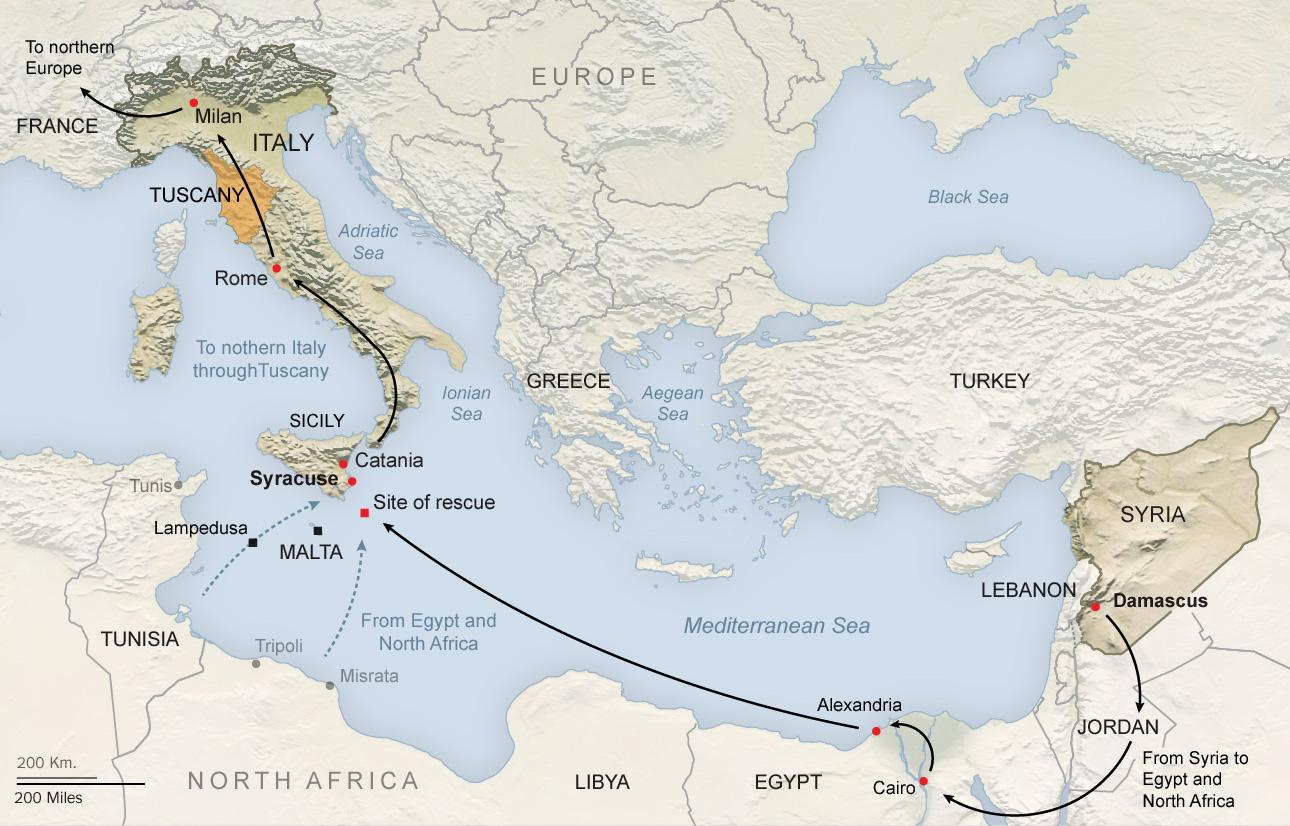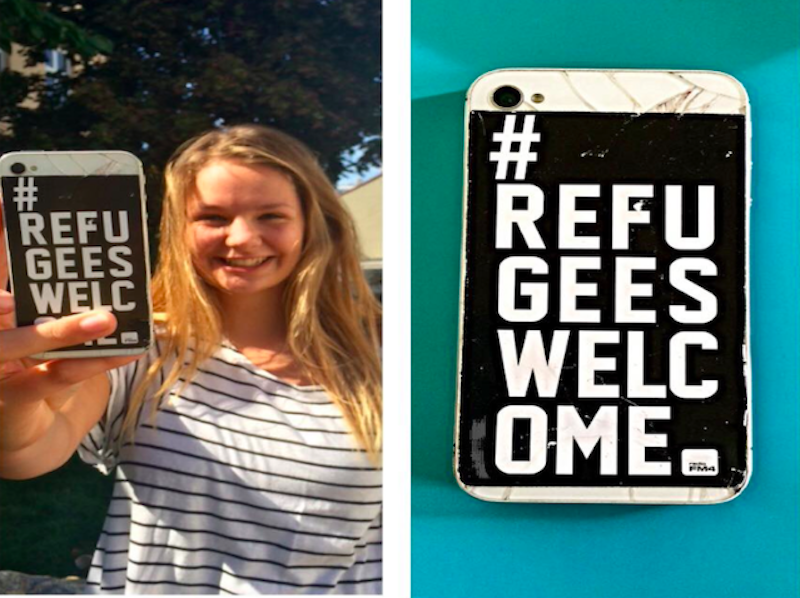The following piece is the second installation of “Blogger without borders,” a blog by junior Bianca Al-Shamari that details her gap semester in Austria from September 2015 to January 2016. Al-Shamari will discuss everything from the refugee crisis in Western Europe to the cultural experience she’s encountering in Vienna. She plans to immerse herself into a new culture and share an international perspective with Palo Alto High School through photos, interviews and travel updates.
Students take action: Migrant crisis receives mass assistance from younger generation
“Imagine the difficulty to leave your home country, travel thousands of miles with very little food, water and a makeshift shelter,” said Emma Graham, a Canadian exchange student in eastern Austria who volunteers for a local refugee camp.
The largest population migration in modern history is spreading its influence across Western Europe, directly influencing the lives of the public. Austria has found itself overwhelmed by the sheer number of migrants seeking asylum, as Austria is one of the countries en route to Germany for the refugees.

Throughout my stay here in Austria, I have witnessed friends, families and classmates come together to foster a community of humanitarians. Movements such as “#RefugeesWelcome” instigate students to put stickers and banners around the school, which serve as words of encouragement to assist refugees in need. Many also volunteer at nearby public community centers that harbor refugees each week, one of which is located a block away from my school. Volunteers offer food and shelter, provide guidance to travel to Germany and assist with travel to neighboring camps.

Karim El Moataoui, an 18-year-old who attends Bundesgymnasium und Bundesrealgymnasium Schwechat, a high school in Schwechat, volunteers at the local community center.
“I’ve never seen this many of my neighbors together before,” El Moataoui said. “We all do our part and I’ve seen how good people have been with each other lately.”
El Moataoui works alongside his mother and sister to assist the refugees.
“Tomorrow, I’m going to be teaching the families here [Schwechat] German,” El Moataoui said. “My mother teaches whenever she has time and my little 16-year-old sister watches over the kids. By this point, everyone just does what they can.”
El Moataoui’s began his volunteer work by building beds and writing six pages of necessary supplies.
“My friend built 150 in one day, after we heard that 600 refugees were coming in that night,” El Moataoui said.
Miriam Haschak, a 16-year-old student at BG/BRG Schwechat, actively helps a group of families who were placed beside her apartment by the local government.
“I’ve really gotten to know the families,” Haschak said. “I usually bring the kids to the doctors and make them food. I’ve been over so often they know around what time I’ll be there, and they make little snacks and tea for me. They’re really warm families.”

Graham, the Canadian exchange student, believes that volunteering at a refugee camp has changed her perspective of the world.
“What I’ve seen at this camp is honestly something I will remember for the rest of my life,” Graham said. “To see people who were desperate for clothing, money and shelter … so grateful when receiving proper shoes and clothing. Being a Canadian citizen, I live a sheltered life. But working in the camp was a real eye-opener.”
Graham helped to sort clothing, organizing it in bunkers for future refugees, and spent the remainder of her volunteer work at the children’s table, playing with the kids using puzzles and coloring books.
“How happy the toys made the children was indescribable and it made me feel amazing at what I had done to help these people with so little,” Graham said. “Those four hours were the most selfless hours of my life and that pure euphoric joy was the best feeling in the world.”
Graham encourages others to volunteer after seeing the value associated with such offered services.
“I firmly believe that this camp was like a motivation for the refugees to keep going and to continue their journey,” Graham said. “These camps are what keeps them motivated to get their family and themselves to safety.”
Graham admires the strength that each Syrian refugee holds by making their journey across countries.
“The refugees, mentally and physically, were probably exhausted,” Graham said. “But the majority of the people managed to keep smiling and put effort in to keep moving forward. To think that some had to do all of this with a family is phenomenal, they possess so much physical and mental strength. Considering the long way and all that these refugees endured, I have so much respect for each and every one of the Syrian refugees.”
After witnessing the refugee crisis firsthand, Graham believes that countries should be more heavily involved in saving lives.
“Take refugees into your country, provide them with the basic necessities and make them thrive,” Graham said. “Train them to be able to work, so they can support their families, so the cycle of poverty doesn’t either continue or begin. Even just letting them pass through all of the European countries so they can reach their destination could be better than putting up barricades and putting them through more emotional, physical and mental pain.”
But one does not have to be located in Western Europe to provide a helping hand. Students and adults alike can offer their assistance worldwide.
“I would recommend helping out any type of humanitarian group, and in any way possible, because the satisfaction of seeing all that one group can accomplished was beyond mesmerizing,” Graham said.
If you would like to join the thousands of people that are a part of the movement to help, feel free to visit any of the following sites: The Guardian, Unrefugees, Savethechildren, Rescue.org
Here’s to the start of a better world.

